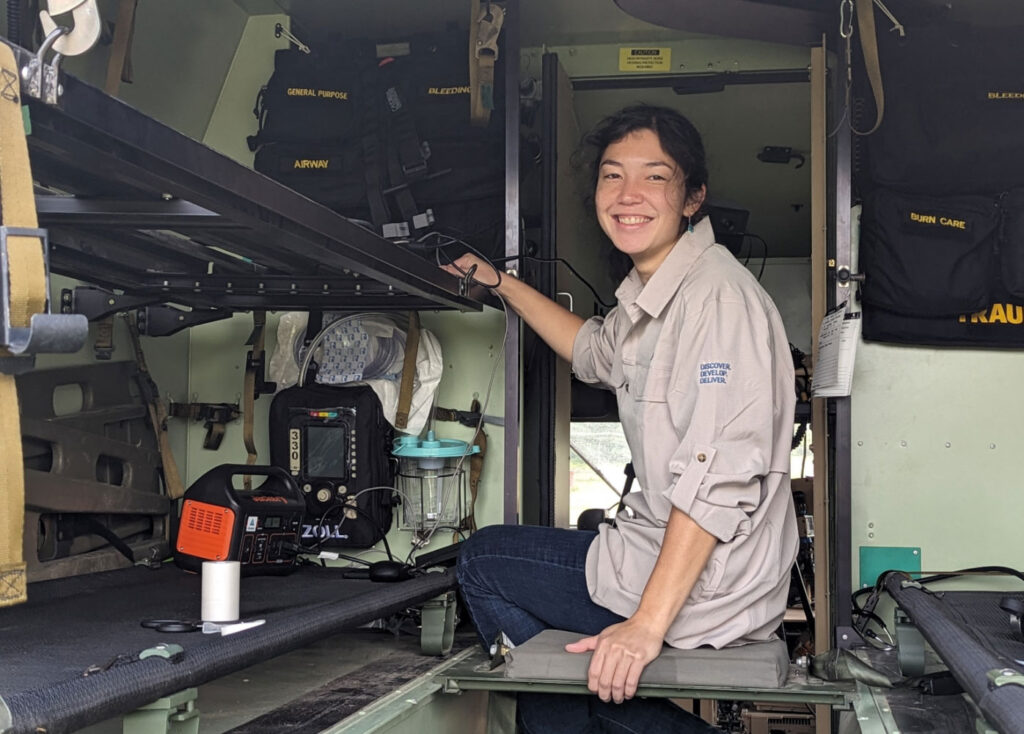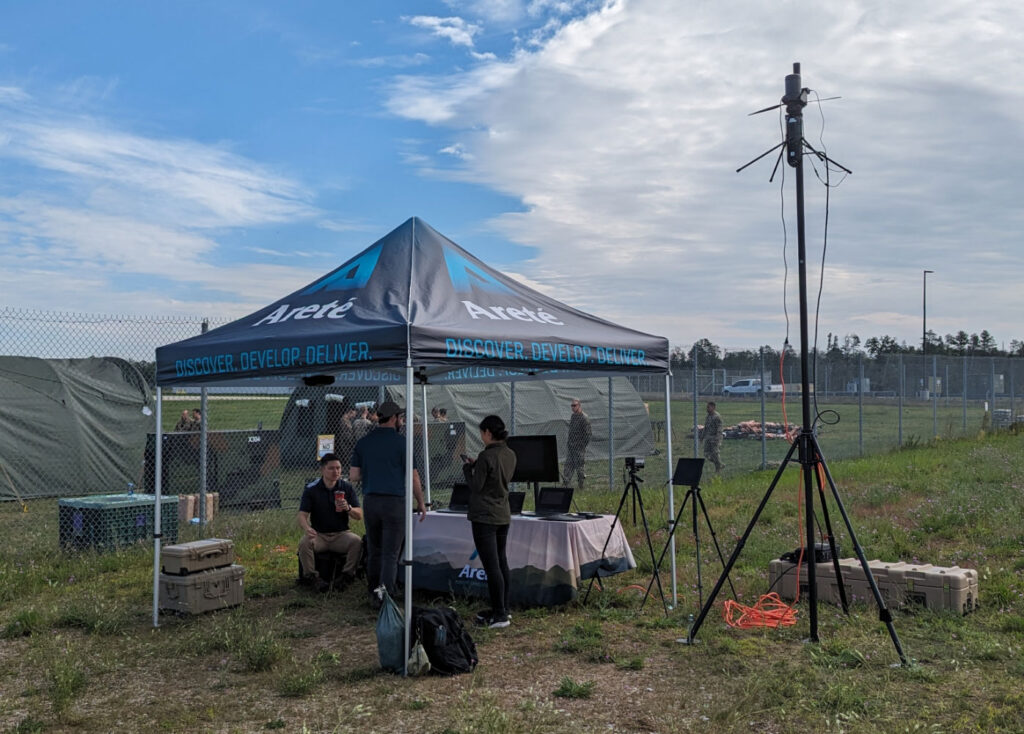

GRAND RAPIDS, MI, UNITED STATES
For the first time, the 294th Medical Company Area Support, from the Iowa National Guard, tested a groundbreaking technology by integrating drones in a training environment on Monday, August 7th. Medical squads were able to experience a cutting-edge drone system that can detect casualties from the sky and assess their vital signs, making it a game-changer in disaster response scenarios. The drones utilize VISTA (Vision and Intelligence Systems for Medical Teaming Applications), which has been in the works for four years, with two dedicated years of intense development for unmanned aerial systems for casualty protection.
“At Northern Strike, we had the perfect place to test the technology. Working with medical personnel is what we want to take to the next level,” said Jay Rouse, the director of business development for Areté, who played a crucial role in integrating the remote triage capability into the VISTA system’s medical ability.
Northern Strike was the ideal training location for the technology to be tested, with a strong emphasis on training to advance the technology. The 294th Medical Company Area Support (MCAS) includes the Medical Treatment Squad, which operates on the field, performing lifesaving measures for those wounded in combat. Utilizing medical drones in the field comes from Areté’s pioneering use of photoplethysmography to monitor heart and respiration rates through the skin, enabling early detection of casualties from a distance. The system has been successfully tested with body armor, demonstrating its capability to scan from 10 to 50 meters, significantly enhancing the efficiency of casualty detection.
SGT Brady Overstreet from the 294th MCAS out of Iowa, who is among the medics utilizing the medical drones expressed his optimism, stating, “I have high hopes for the potential usage of this. This is the first time our squad is using this technology. I think this training is great; there are so many moving parts to being a medic,” Overstreet said. “This will be better for our patients, units, and Army.”
The Iowa Medical Company’s collaboration with the Army Medical Research and Development Command’s Telemedicine and Advanced Technology Research Center (TATRC) has been instrumental in advancing Project VISTA. This joint effort aims to enhance human detection signals from casualties, with future expansion plans to include wound classification and broader medic capabilities.
The Northern Strike exercise provided the ideal platform for demonstrating the medical capability, showcasing the potential for broader use in disaster response scenarios. Ethan Quest, the Deputy Chief of the Medical Robotics and Automatic Systems Division at TATRC, highlighted the importance of Northern Strike as a platform for demonstrating their solution.
“We are here to support Project VISTA for casualty detection and standoff assessment of casualty through a US solution,” Quest said. “This was a very good opportunity for us to demonstrate our capabilities of showing our solution. The specific goal is to get feedback from the Medics. We are looking to improve the system for their capabilities. We were happy to be here at Northern Strike and work with the medics to see the capability to keep our soldiers and medics safe.”
The collaboration between the Iowa Medical Company and TATRC leads to advancements in medical training and real-world application. The innovative medical drone represents a significant step forward in improving medical practices.
As the eyes and ears of first responders in mass casualty and emergency events, the medical drone is a valuable asset for ensuring prompt and efficient medical assistance. As the medical field looks to the future, exploring the potential for broader adoption of innovative medical technologies like VISTA will undoubtedly shape a brighter future for medical care in challenging environments.
“With the medical drones, we can find casualties and wounded quicker and further away. We can identify the triage before we even get to the site and monitor the patients as they get evacuated to the next level of care,” said Jay Rouse, business director at Areté, emphasizing the system’s capability to revolutionize medical response.
The drone project VISTA at Northern Strike showcases the power of collaboration and innovation in advancing medical capabilities. The medical field continues to evolve and improve through the dedication and passion of individuals like Jay Rouse, SGT Brady Overstreet, and Ethan Quest, promising a future where advanced tools enhance patient care and save lives in the most challenging situations.